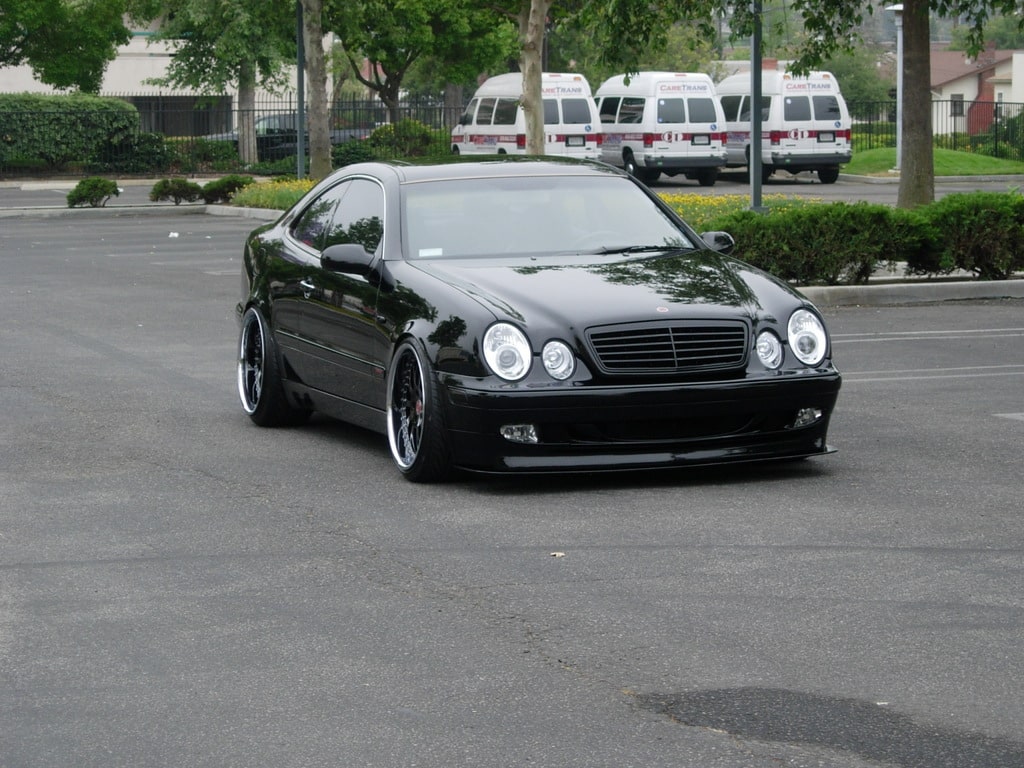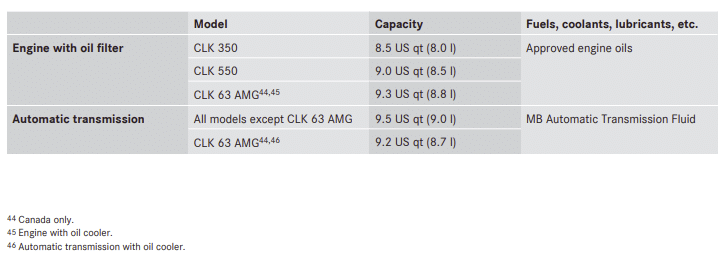The Mercedes-Benz CLK-Class is more than just a car; it represents a lineage of excellence, a blend of performance and elegance that has been the hallmark of Mercedes-Benz for decades. Introduced in the late 1990s, the CLK-Class quickly became an emblem of luxury and power.
Key Takeaways:
- Transmission’s Role: The transmission is integral to the CLK-Class Coupe’s performance, ensuring smooth gear shifts and optimal driving experiences.
- First Fluid Change: Generally, the initial transmission fluid change for the CLK-Class Coupe is recommended between 60,000 to 100,000 miles, but always refer to the specific model’s manual.
- Subsequent Intervals: Following the first change, regular fluid replacements are typically advised every 40,000 to 60,000 miles, ensuring the transmission remains clean and efficient.
- Factors Influencing Change Intervals: Aggressive driving habits, specific model variations, and external driving conditions can all influence the frequency of transmission fluid changes.
- Importance of the Right Fluid: Adhering to Mercedes-Benz’s fluid recommendations ensures the transmission’s longevity and preserves the vehicle’s warranty. Using non-recommended fluids can compromise performance and lead to potential damages.
- Consistent Maintenance: Regular checks and timely fluid changes are foundational for preserving the CLK-Class Coupe’s performance and luxury feel.

Spanning across multiple generations, each iteration brought with it refined aesthetics, technological advancements, and an enhanced driving experience, setting benchmarks for its competitors.
But what drives this magnificent machine with such grace and precision? Beyond the engine, it’s the intricate transmission system that seamlessly transfers power, ensuring that the CLK glides on the road. This is where the importance of transmission fluid comes into play.
The transmission fluid is not just a lubricant; it’s the lifeblood of the transmission system. Its role is paramount – from cooling the transmission to facilitating smooth gear shifts, and from preventing wear and tear to ensuring longevity.
Choosing the right type and maintaining the appropriate level of transmission fluid is more than just a routine; it’s about upholding the performance the CLK-Class promises. It’s about ensuring that every drive feels as exquisite as the first, capturing the true essence of what it means to own a Mercedes-Benz CLK-Class.
1998-2009 Mercedes-Benz CLK-Class Transmission Fluid Capacity
The CLK-Class coupe, emblematic of Mercedes-Benz’s dedication to excellence, has seen several iterations, each accompanied by distinct transmission systems tailored for an unparalleled driving experience.
Below, we delve into each generation’s specifics and the recommended care for their respective transmissions.
2006-2009 Mercedes-Benz CLK-Class C209 Facelift Transmission Fluid Capacity And Type
This era witnessed a refinement in the transmission system, incorporating enhanced technologies that optimized smoother shifts and better fuel efficiency.

The integration of more advanced sensors ensured the gear ratios adjusted more fluidly to the driving conditions.

| Gearbox | Fluid capacity | Fluid type |
|---|---|---|
| CLK350 7-speed 722.9 | Total fill: 9.5 US qt (9 liters) | MB 236.14 |
| CLK500 7-speed 722.9 | Total fill: 9.5 US qt (9 liters) | MB 236.14 |
| CLK55 AMG 5-speed 722.6 | Total fill: 9.2 US qt (8.7 liters) | MB 236.14 |
| CLK63 AMG | Total fill: 9.2 US qt (8.7 liters) | MB 236.14 |
- Shell ATF 134 Mercedes Benz Transmission Fluid 236.14 236.12
- Mercedes Benz Transmission Fluid 236.14 236.12
- Please note Shell ATF 134 has seal defect from the manufacture to prevent leakage all we reseal the bottles and bag the fluid prior to shipping**
Mercedes-Benz recommends the use of MB 236.14 Automatic Transmission Fluid (ATF) for optimal performance. The capacity stands at approximately 8.7 liters.
2003-2005 Mercedes-Benz CLK-Class C209 Transmission Fluid Capacity And Type
Introduced with an adaptive logic system, this generation’s transmission was designed to adapt to individual driving styles. It could ‘learn’ and predict when to shift based on the patterns of the driver, providing a more tailored driving experience.
| Gearbox | Fluid capacity | Fluid type |
|---|---|---|
| CLK320 5-speed 722.6 | Total fill: 7.9 US qt (7.5 liters) | MB 236.14 |
| CLK500 5-speed 722.6 | Total fill: 9.2 US qt (8.7 liters) | MB 236.14 |
| CLK55 AMG 5-speed 722.6 | Total fill: 9.2 US qt (8.7 liters) | MB 236.14 |
The recommended transmission fluid for this generation is the MB 236.14 ATF. The typical capacity is around 8.7 liters, but variations can exist based on specific sub-models and configurations.
2000-2002 Mercedes-Benz CLK-Class W208 Facelift Transmission Fluid Capacity And Type
Building on the foundation of the 1st Gen, this facelifted version introduced improved hydraulic systems and electronic modules.

The result was more responsive shifts, especially during higher RPMs, ensuring a blend of performance and comfort.
| Gearbox | Fluid capacity | Fluid type |
|---|---|---|
| CLK320 5-speed 722.6 | Total fill: 8.5 US qt (8 liters) | MB 236.14 |
| CLK430 5-speed 722.6 | Total fill: 9.6 US qt (9.1 liters) | MB 236.14 |
| CLK55 AMG 5-speed 722.6 | Total fill: 9.6 US qt (9.1 liters) | MB 236.14 |
The Mercedes-Benz-approved fluid for this period is the MB 236.14 ATF. Fluid capacity is generally about 9.1 liters, with slight variations based on the exact model.
1998-1999 Mercedes-Benz CLK-Class W208 Transmission Fluid Capacity And Type
Setting the tone for the future, this generation boasted a 5-speed automatic transmission system. Designed to offer a blend of sporty performance and cruising comfort, it set the CLK-Class apart in its segment.
| Gearbox | Fluid capacity | Fluid type |
|---|---|---|
| CLK320 5-speed 722.6 | Total fill: 8.5 US qt (8 liters) | MB 236.14 |
Mercedes-Benz specified the use of MB 236.14 ATF for this pioneering generation. On average, the transmission system of this model requires around 8 liters of fluid for a complete change.
The Role of Transmission Fluid
Transmission fluid serves as the unsung hero within the heart of every automobile, particularly in luxury models like the Mercedes-Benz CLK-Class Coupe. Its roles are multifaceted, each one crucial to maintaining the car’s signature performance and drive feel.
- Ensuring Smooth Movement of Internal Parts: At the core of its function, transmission fluid acts as a lubricant. Just as our joints need fluid for seamless movement, the CLK’s transmission requires this fluid to prevent friction between its many intricate parts. This lubrication ensures that each component can move effortlessly, reducing wear and potential damage, thus prolonging the life of the transmission.
- Cooling the Transmission System: The act of transmitting engine power to the wheels is no small feat, and it generates a considerable amount of heat. Transmission fluid helps dissipate this heat, ensuring the system remains at optimal temperatures. In doing so, it prevents overheating, which could otherwise lead to decreased performance, wear, and even system failures.
- Aiding in Flawless Gear Shifts: Anyone who’s experienced the smooth transition between gears in a CLK-Class Coupe knows the feeling is unparalleled. This seamless shift is, in part, thanks to the transmission fluid. It facilitates the hydraulic functions needed to engage and disengage gears without the jarring or grinding one might find in lesser vehicles. The result? A driving experience that feels both powerful and effortlessly smooth.
Choosing the Right Transmission Fluid
The performance, longevity, and smooth operation of your Mercedes-Benz CLK-Class Coupe’s transmission depend heavily on the type of transmission fluid you use. Just as blood nourishes the body and keeps it functioning optimally, transmission fluid plays an indispensable role in the health of a car’s transmission system.
The Importance of Adhering to Mercedes-Benz’s Fluid Recommendations
- Optimized Performance: Mercedes-Benz, as a pioneer in automobile engineering, designs its vehicles with precision. The recommended transmission fluid is engineered to meet the specific viscosity and lubrication requirements of the CLK-Class Coupe, ensuring that the transmission shifts seamlessly under varying conditions.
- Extended Lifespan: Using the specified fluid can significantly prolong the life of the transmission. The tailored fluid provides the ideal protection against wear and tear, reducing the chances of premature transmission failures.
- Warranty Preservation: Adhering to the recommended fluid can also be crucial for upholding the car’s warranty. Many warranties become void if the owner doesn’t adhere to the prescribed maintenance guidelines.
Potential Issues with Using Off-Brand or Non-Recommended Fluid Types
- Degraded Performance: Non-recommended fluids may not offer the optimal viscosity or contain necessary additives that the CLK-Class Coupe’s transmission requires. This can lead to rough or delayed shifts, compromising the signature smooth driving experience.
- Increased Wear: The wrong fluid can result in increased friction within the transmission components. Over time, this heightened wear and tear can lead to transmission malfunctions or even complete failure.
- Contamination & Build-up: Off-brand or inferior quality fluids might not have the same purity levels or might degrade faster. This can lead to sludge or deposit build-up within the transmission system, affecting its efficiency and potentially leading to blockages.
- Potential Chemical Reactions: Mixing different fluid types, especially those not formulated for the CLK-Class Coupe, can lead to chemical reactions. These reactions might produce harmful compounds that could damage the transmission internals.
In summary, while it might be tempting to opt for cheaper alternatives or rely on generic transmission fluids, the risks associated with such choices can be detrimental. For the longevity and performance of your Mercedes-Benz CLK-Class Coupe, it’s paramount to trust only the fluids that are explicitly recommended by Mercedes-Benz.
Transmission Fluid Change Intervals
A well-maintained transmission is pivotal to the continued smooth operation of any vehicle, especially a luxury model like the Mercedes-Benz CLK-Class Coupe. Ensuring that the transmission fluid remains fresh and clean is a foundational aspect of this maintenance.
Here’s a guide on when and why to change this crucial component:
Recommended Timing for the First Fluid Change
For most luxury vehicles, including the Mercedes-Benz CLK-Class Coupe, the first transmission fluid change is generally recommended between 60,000 to 100,000 miles.
However, always refer to the specific vehicle’s owner manual as certain models or conditions might have different guidelines.
Regular Fluid Change Intervals and Their Importance
- Interval Timing: After the initial change, it’s typically advised to replace the transmission fluid every 40,000 to 60,000 miles. This interval ensures the fluid remains fresh and continues to provide the lubrication and cooling that the transmission requires.
- Preservation of Transmission Health: Regular fluid changes remove any debris or contaminants that might accumulate over time. Fresh fluid reduces wear on gears and other components, extending the transmission’s life.
- Optimal Performance: Clean transmission fluid ensures smooth and responsive gear shifts, maintaining the luxury feel and drive performance expected from a CLK-Class Coupe.
- Cost Savings: Preventative maintenance, like timely fluid changes, can help avoid more significant, costly repairs down the road. It’s an investment in the vehicle’s longevity and performance.
Influencing Factors: Driving Habits, Model Specifics, and External Conditions
- Driving Habits: Aggressive driving, frequent stop-and-go situations, or towing can place additional strain on the transmission. In these cases, more frequent fluid changes might be necessary to compensate for the added wear and tear.
- Model Specifics: While the CLK-Class Coupe has general guidelines, different models or engine configurations within the lineup might have specific needs or recommendations. Always refer to the model-specific owner’s manual.
- External Conditions: Driving in extreme conditions, be it very hot or cold climates, dusty areas, or regularly traversing mountainous terrains, can impact the longevity of transmission fluid. Under these circumstances, shorter change intervals are often recommended.
Last update on 2026-01-30 / Affiliate links / Images from Amazon Product Advertising API
















